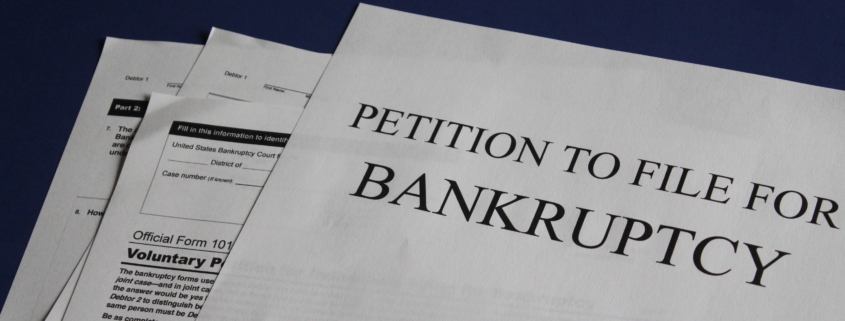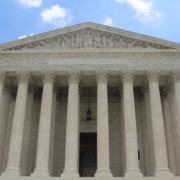Chapter 420 Bankruptcy?: How In re United Cannabis Could Open the Doors to Bankruptcy Relief for Cannabis-Adjacent Businesses
Let’s say you’re a hemp/CBD business (that also services the cannabis industry in a limited capacity) and COVID-19 has hit you. Hard. You’ve stretched your resources as far as you can, but you’re still on the ropes financially. The California eviction moratorium has been rolled back and your local eviction moratorium—the only thing protecting commercial tenants (in San Diego County and many others)–is about to expire at the end of September. The CDC has issued an order forbidding evictions until the end of the year, but only for residential tenants. Your landlord is waiting in the wings to be paid in full for the back rent you couldn’t afford to pay during the lockdown.
The b-word—bankruptcy—rears its head in your mind. But can you, as a business that is still federally illegal, file for bankruptcy—a creature of federal law?
One would think the answer is “absolutely not.” However, a relatively recent District of Colorado Bankruptcy Court ruling, and its soon-to-be progeny, may eventually provide a glimmer of hope for the distressed cannabis-adjacent business.
On April 20, 2020—a date not without significance for the cannabis industry—United Cannabis Corporation and its associated entity UC Colorado Corporation filed for bankruptcy in the District of Colorado. Shortly thereafter, on April 22, 2020, Bankruptcy Judge Joseph G. Rosania, Jr. issued an Order to Show Cause why the bankruptcy should not be dismissed, citing the rule that businesses whose operations constitute federal crimes cannot take advantage of the federal bankruptcy system. Arenas v. United States Tr. (In re Arenas), 535 B.R. 845, 847 (B.A.P. 10th Cir. 2015).
Despite this seemingly impassable roadblock, the debtors are hoping to take advantage of a narrow gap in the case law hinted at by an earlier bankruptcy case from the District of Colorado—In re Way to Grow, Inc., 610 B.R. 338 (D. Colo. 2019). In that case, the debtors were a group of business entities selling hydroponic agriculture equipment. On December 14, 2018, the Bankruptcy Court dismissed the petition, citing the fact that although hydroponic equipment can be used to grow any number of crops, the overwhelming majority of debtors’ sales were to cultivators. In re Way to Grow, Inc., 597 B.R. 111 (Bankr. D. Colo. 2018). The debtors appealed to the District Court, citing Congress’ passage of the Agriculture Improvement Act of 2018—also known as the 2018 Farm Bill—which legalized hemp on December 20, 2018, mere days after the Bankruptcy Court dismissed debtors’ petition. 610 B.R. at 355. The debtors argued that their products could have been used by their customers for the now-legal cultivation of hemp, as opposed to cannabis. Id. The court demurred, stating “[t]his Court does not opine on whether the timing of the Agriculture Improvement Act’s passage excuses Debtors’ failure to develop a proper record or to advance the argument” that “‘the legalization of hemp means that they could reorganize based on the hemp market.’” Id. at 355-56.
This brief discussion of the tension between federally illegal cannabis and federally legal hemp as it relates to bankruptcy eligibility left the door ajar for a debtor like United Cannabis. United Cannabis has filed a petition tailored to fit through that narrow gap, arguing that its chapter 11 reorganization can be funded by its non-cannabis income. United Cannabis argues that its $4 million bankruptcy estate is overwhelmingly derived from legal hemp/CBD business whose only cannabis-related holding is ownership of stock in WeedMD, a Canadian medical cannabis company whose shares are publicly traded in the United States.
In other words, United Cannabis has placed the exact question the District of Colorado dodged in Way to Grow squarely before the District of Colorado Bankruptcy Court: Can a company with some income derived from cannabis be allowed to file for chapter 11 bankruptcy if it can fully fund its reorganization without that cannabis-derived income?
As of now, that question remains unanswered. The debtor and the U.S. Trustee have filed their responses to the court’s OSC and now the parties—as well as industry watchdogs—eagerly await the court’s decision. The court’s ruling on the Order to Show Cause has been pending since mid-May 2020 and the court has allowed the bankruptcy to proceed as normal in the interim. Although the court itself has offered no timeline for when it will issue its decision on the Order to Show Cause, nor has it indicated why its decision has been pending for nearly four months, one can only speculate that the court may be waiting for guidance from Congress or elsewhere before issuing its decision. Moreover, the length of time that has elapsed since the parties in interest submitted their responses to the Order to Show Cause suggests that the court does not view the issue as a black-and-white one—or, at the very least, as a political hot potato.
Regardless of when the decision will be issued, if the court allows the debtors’ petitions to survive its OSC , it could be a watershed moment for businesses who service the industry in a small capacity by opening the door to bankruptcy relief, provided that they can fund their reorganization without cannabis money. However, the court could easily bypass this question just as the court did in Way to Grow. The U.S. Trustee, citing United Cannabis’ own marketing materials, argued in its response to the OSC that United Cannabis marketed itself largely as a cannabis company, not as a legal hemp/CBD company. Per the U.S. Trustee, United Cannabis had, in the recent past, identified numerous cannabis/THC products that it sold and distributed. If the court finds this evidence credible, it could easily find that United Cannabis is not entitled to bankruptcy relief because it cannot fund its reorganization with non-cannabis money, regardless of whether that route would be a viable path to bankruptcy.
COVID-19 has taken its toll on a wide swath of industries—including the “essential” cannabis industry. Despite this designation, cannabis businesses have been cut off from Paycheck Protection Program loans and bankruptcy, among other federal forms of economic relief. However, if the United Cannabis court decides that mixed hemp/cannabis companies can file for bankruptcy if they can reorganize without cannabis money, that pushes the cannabis industry an inch closer to enjoying the governmental benefits that its non-cannabis business counterparts enjoy.












